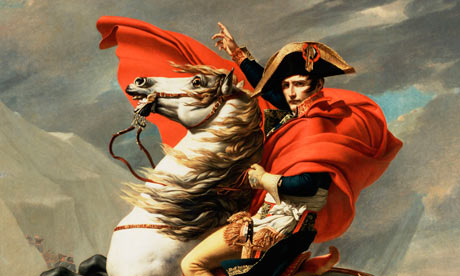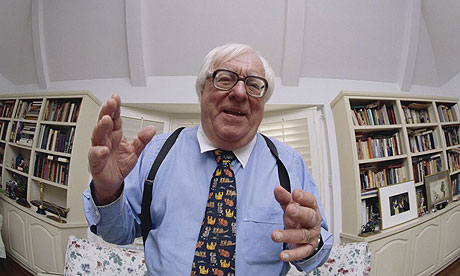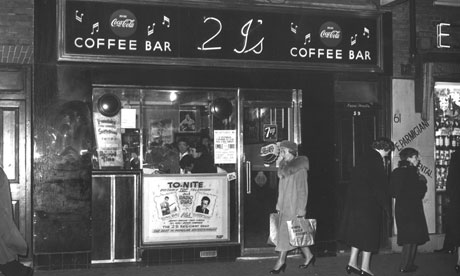The Joyful Side of Translation
By ADAM THIRLWELL
The theory of translation is very rarely — how to put this? — comical.
Its mode is elegy, and severe admonishment. In the 20th century, its
great figures were Vladimir Nabokov, in exile from Soviet Russia,
attacking libertines like Robert Lowell for their infidelities to the
literal sense; or Walter Benjamin, Jewish in a proto-Nazi Berlin,
describing the Task of the Translator as an impossible ideal of
exegesis. You can never, so runs the elegiac argument, precisely
reproduce a line of poetry in another language. Poetry! You can hardly
even translate “maman.” . . . And this elegiac argument has its elegiac
myth: the Tower of Babel, where the world’s multiplicity of languages is
seen as mankind’s punishment — condemned to the howlers, the faux amis, the foreign menu apps. Whereas the ideal linguistic state would be the lost universal language of Eden.
It’s rarely flippant, or joyful — the theory of translation.
David Bellos’s new book on translation at first sidesteps this
philosophy. He describes the dragomans of Ottoman Turkey, the invention
of simultaneous translation at the Nuremberg trials, news wires, the
speech bubbles of Astérix, Bergman subtitles. . . . He offers an
anthropology of translation acts. But through this anthropology a much
grander project emerges. The old theories were elegiac, stately; they
were very much severe. Bellos is practical, and sprightly. He is
unseduced by elegy. And this is because he is on to something new.
Bellos is a professor of French and comparative literature at Princeton
University, and also the director of the Program in Translation and
Intercultural Communication there (at which, I should add, I once
spoke). But to me he’s more interesting as the translator of two
peculiarly great and problematic novelists: the Frenchman Georges Perec,
whose work is characterized by a manic concern for form, and the
Albanian Ismail Kadare, whose work Bellos translates not from the
original Albanian, but from French translations supervised by Kadare.
Bellos’s twin experience with these novelists is, I think, at the root
of his new book, for these experiences with translation prove two
things: It’s still possible to find adequate equivalents for even
manically formal prose; and it’s also possible to find such equivalents
via a language that is not a work’s original. Whereas according to the
sad and orthodox theories of translation, neither of these truths should
be true.
At one point, Bellos quotes with rightful pride a small instance of his
own inventiveness. In Perec’s novel “Life: A User’s Manual,” a character
walks through a Parisian arcade, stopping to look at the “humorous
visiting cards in a joke-shop window.” In Perec’s original French, one
of these cards is: “Adolf Hitler/Fourreur.” A fourreur is a furrier, but
Perec’s joke-shop joke is that it also resembles the French
pronunciation of Führer. So Bellos, in his English version, rightly
translates “fourreur” not as “furrier,” but like this: “Adolf
Hitler/German Lieder.” Bellos’s new multiphonic pun is a travesty, no
doubt about it — and it’s also the most precise translation possible.
The conclusions that this paradox demands are, let’s say, bewildering
for the old-fashioned reader. We’re used to thinking that each person
speaks an individual language — his mother tongue — and that this mother
tongue is a discrete entity, with a vocabulary manipulated by a fixed
grammar. But this picture, Bellos argues, doesn’t match the everyday
shifts of our multiple languages, nor the mess of our language use.
Bellos’s deep philosophical enemy is what he calls “nomenclaturism,”
“the notion that words are essentially names” — a notion that has been
magnified in our modern era of writing: a conspiracy of lexicographers.
It annoys him because this misconception is often used to support the
idea that translation is impossible, since all languages largely consist
of words with no single comprehensive equivalent in other languages.
But, Bellos writes: “A simple term such as ‘head,’ for example, can’t be
counted as the ‘name’ of any particular thing. It figures in all kinds
of expressions.” And while no single word in French, say, will cover all
the connotations of the word “head,” its meaning “in any particular
usage can easily be represented in another language.”
The misconception, however, has a very long history. Ever since St.
Jerome translated the Bible into Latin, discussion of translation has
dissolved into the ineffable — the famous idea that each language
creates an essentially different mental world, and so all translations
are doomed to philosophical inadequacy. In Bellos’s new proposal,
translation instead “presupposes . . . the irrelevance of the ineffable
to acts of communication.” Zigzagging through case studies of missionary
Bibles or cold war language machines, Bellos calmly removes this old
idea of the ineffable, and its unfortunate effects.
It’s often said, for instance, that a translation can’t ever be an
adequate substitute for the original. But a translation, Bellos writes,
isn’t trying to be the same as the original, but to be like it. Which is
why the usual conceptual duo of translation — fidelity, and the literal
— is too clumsy. These ideas just derive from the misplaced anxiety
that a translation is trying to be a substitute. Adolf Hitler/Fourreur! A
translation into English as “furrier” would be literally accurate; it
would, however, be an inadequate likeness.
In literature, there’s a related subset of this anxiety: the idea that
style — since it establishes such an intricate relationship between form
and content — makes a work of art untranslatable. But again, this
melancholy is melodramatic. It will always be possible in a translation
to find new relationships between sound and sense that are equivalently
interesting, if not phonetically identical. Style, like a joke, just
needs the talented discovery of equivalents. “Finding a match for a joke
and a match for a style,” Bellos writes, “are both instances of a more
general ability that may best be called a pattern-matching skill.”
Translation, Bellos proposes in a dryly explosive statement, rather than
providing a substitute instead “provides for some community an
acceptable match for an utterance made in a foreign tongue.” What makes a
match acceptable will vary according to that community’s idea of what
aspects of an utterance need to be matched by its translation. After
all, “no translation can be expected to be like its source in more than a
few selected ways.” So a translation can’t be right or wrong “in the
manner of a school quiz or a bank statement. A translation is more like a
portrait in oils.” In a translation, as any art form, the search is for
an equivalent sign.
And for the inhabitants of London or Los Angeles, this dismantling of
the myths around translation has peculiar implications. As Bellos points
out, those born as English speakers are now a minority of English
speakers: most speak it as a second language. English is the world’s
biggest interlanguage.
So two futures, I think, can be drawn from this dazzlingly inventive
book, and they are gratifyingly large. The first is for every English
speaker. Google Translate, no doubt about it, is a device with an
exuberant future. It’s already so successful because, unlike previous
machine translators, but like other Google inventions, it’s a pattern
recognition machine. It analyzes the corpus of existing translations,
and finds statistical matches. The implications of this still haven’t, I
think, been adequately explored: from world newspapers, to world
novels. . . . And it made me imagine a second prospect — confined to a
smaller, hypersubset of English speakers, the novelists. I am an
English-speaking novelist, after all. There was no reason, I argued to
myself, that translations of fiction couldn’t be made far more
extensively in and out of languages that are not a work’s original. Yes,
I started to cherish a future history of the novel that would be
recklessly international. In other words: there’d be nothing wrong, I
kept thinking, with making translation more joyful.








